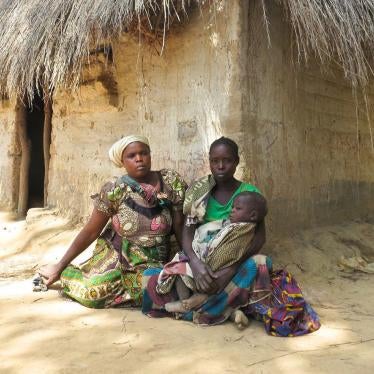E.S. had been married for 10 years when her husband died. Almost overnight, her life—and her three young children’s—collapsed. E.S.’s in-laws kicked her out of her modest home in Tanzania. She and her children took refuge with her parents. Another widow in Tanzania, S.C., and her infant were also ordered out of their home, in that case too by in-laws.
Under the customary inheritance laws of many communities in Tanzania, a widow with children inherits nothing from her husband. These laws also deny women the right to inherit clan land or to be administrators of their relatives’ estates. Sons inherit clan land and the largest share of personal property, while daughters get no clan land and the smallest share of personal property.
E.S. and S.C. went to court, asserting that their community’s inheritance laws violated Tanzania’s constitution and human rights obligations. One court recognized the discrimination, but rejected their claims. The appeals court took four years to hear the case, and then dismissed it on a technicality. With no hope of justice in these courts, the widows turned to the United Nations.
Aided by the Women’s Legal Aid Centre in Tanzania and the International Women’s Human Rights Clinic at Georgetown Law School in Washington DC, E.S. and S.C. made their case before the United Nations Committee on the Elimination of Discrimination against Women (the CEDAW Committee). In April 2015, the committee ruled in their favor.
In its landmark decision, the committee found that Tanzania’s codified customary law violated the women’s rights by denying them equality in respect of inheritance. It also found that Tanzania’s courts had violated their rights of access to justice and to an effective remedy. It recommended that the Tanzanian government compensate both widows, and called for constitutional and customary law reforms and practical measures to eliminate this discrimination.
However, a year later, the widows are still waiting. Tanzania has not paid any compensation, and the women’s lawyers say the government has made no progress on the broader reforms. In March, the CEDAW Committee again called upon Tanzania to take immediate action on widows’ rights. Human Rights Watch sent a letter to the government urging action.
While the government stalls, widows in Tanzania remain without their equal right to inherit.








